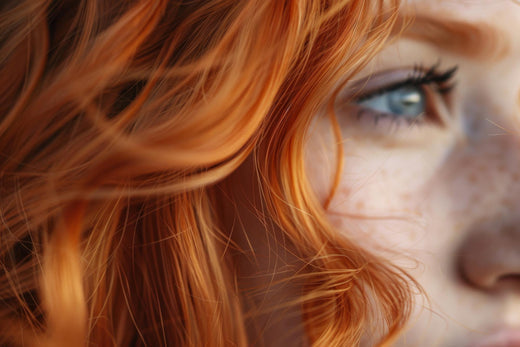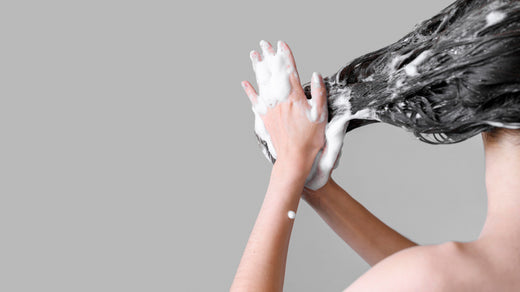
5 advantages of natural hair dyes
Table of Contents
Ladies, as you may know, the main difference between natural and chemical dyes lies in the ingredients used and the application process. Today I would like to share with you the advantages that natural hair dyes offer compared to chemical dyes. Here are the main ones:
1. Less damage to hair
Natural dyes generally contain less harsh ingredients than chemical dyes. Harsh chemicals present in conventional dyes can damage the hair cuticle, which can result in dryness, brittleness, and loss of shine. Natural dyes tend to be gentler and less damaging to hair health.
2. Non-toxic ingredients
Natural hair dyes use ingredients from natural sources, such as plants, herbs, and fruits. This means they are free of many of the toxic chemicals found in commercial hair dyes, such as ammonia, parabens, and sulfates. Exposure to fewer toxic chemicals can be beneficial for the overall health of your scalp and body.
3. Lower risk of allergic reactions
People with sensitive skin or prone to allergic reactions may find natural dyes to be a safer option. Chemical dyes often contain substances that can trigger scalp irritations or skin allergies. Natural dyes are less likely to cause these types of reactions, although it is important to perform a patch test to ensure there is no individual sensitivity to any ingredient.
4. Softer and more gradual results
Natural dyes tend to offer more subtle and gradual results compared to chemical dyes, which can provide more drastic color changes. This can be beneficial if you're looking for a softer change in your look or prefer to avoid harsh contrasts. Additionally, natural dyes tend to fade more gradually, avoiding noticeable lines of demarcation between dyed hair and natural growth.
5. Less environmental impact
The production and disposal of chemical dyes can have a significant environmental impact due to the generation of toxic waste and water pollution. Natural dyes are often biodegradable and can be a more sustainable option. Additionally, many of the natural ingredients used in these dyes are sustainably grown, which can contribute to more environmentally friendly practices.

The natural hair dye par excellence: henna
Henna is a natural dye obtained from the dried and crushed leaves of the Lawsonia inermis plant. This dye has been used for centuries in various cultures to dye hair, skin and nails. Its history of use in hair coloring supports its recognition as a natural alternative. Here I explain why henna is considered a natural dye and some of its advantages compared to chemical dyes:
Natural origin
Henna is a plant-derived product, meaning it is a natural dye option. It is obtained from the leaves of the Lawsonia inermis plant, which are dried and pulverized to produce a powder that is mixed with liquids such as water, tea or lemon juice to create a paste that can be applied to the hair.
Less harsh chemicals
Unlike many chemical dyes, henna does not contain ammonia, peroxides, or other harsh chemicals. Instead of opening the hair cuticle to deposit color, as some chemical dyes do, henna colors the hair by coating each strand. This can help maintain the integrity of the hair and reduce damage associated with other types of dyes.
Shine and strength
Henna not only colors your hair, but can also improve its health. It is believed to strengthen hair, make it thicker, and give it a natural shine. Additionally, it can help smooth out the texture of your hair, giving it a silkier feel.
Natural and long-lasting colors
Henna provides warm, natural colors that tend to be long-lasting, especially in shades of red to brown, depending on the application method and the original hair color. Although results may vary depending on the hair base and frequency of washing, in general, henna tends to fade gradually and does not leave noticeable roots, as it does not drastically alter the natural color all at once.
Lower risk of allergic reactions
Compared to some chemical dyes, henna is less likely to cause allergic reactions. However, it is important to note that some people may be sensitive to henna, so it is always recommended to perform a patch test before applying it fully.
At Radhe Shyam, we have different formats to apply henna on your hair . They are as follows:
- Henna Powder : Henna powder is ideal if you prefer to customize your blend. You can adjust the consistency and intensity of the color by mixing the powder with different liquids, such as water, tea, or lemon juice. This allows you to experiment and find the perfect blend for your hair.
- Henna dye : Ready-made henna dyes are convenient and easy to use, with no mixing required. They are ideal if you are looking for a quick application and don't want to mess around with preparation. This can be especially helpful if you are a beginner at applying henna.
- Henna paste : Ready-to-use henna paste is perfect if you want to skip the mixing process. You simply open the package and it's ready to apply, but with a thicker texture than dye. This can save you time and effort, and is useful if you're looking for a quick application.
We are here to take care of your hair in the way that best suits your needs!


Leave a comment
This site is protected by hCaptcha and the hCaptcha Privacy Policy and Terms of Service apply.